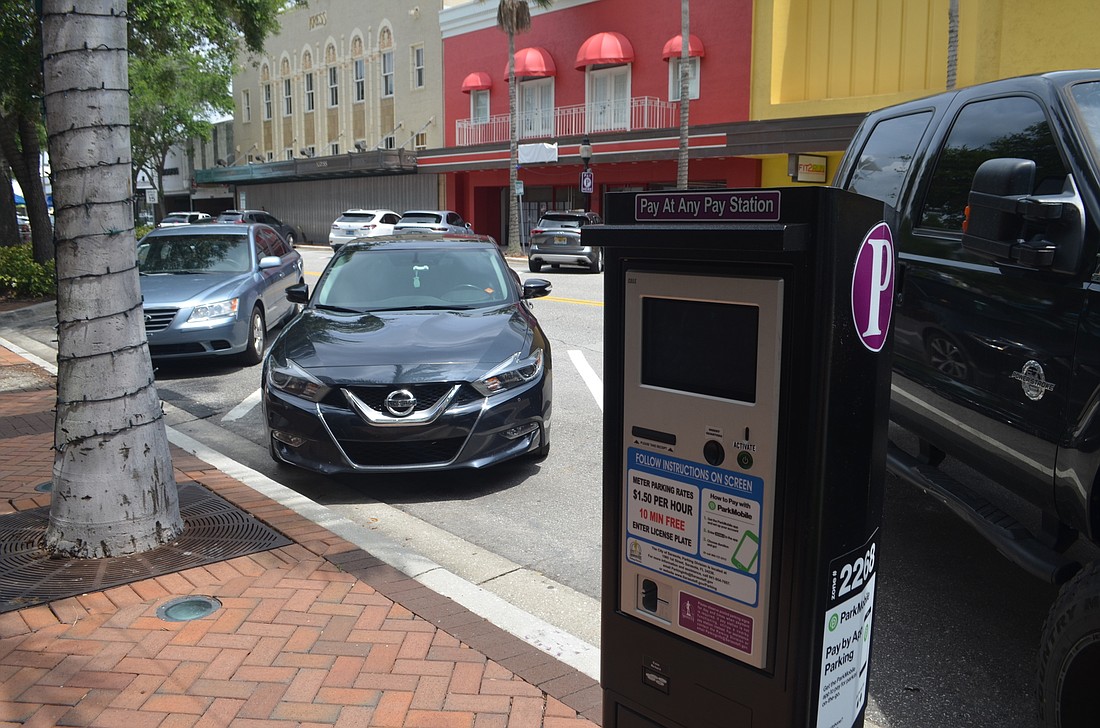- February 11, 2026
-
-
Loading

Loading

Paid parking has a rocky history in the city of Sarasota.
In the early 2010s, an effort to install parking meters was met with vocal opposition from downtown merchants, who successfully lobbied officials to rip out the meters shortly after they were installed.
In subsequent years, as the city expanded its parking infrastructure, the parking department began to draw increasingly large subsidies from the general fund. Parking Manager Mark Lyons began to once again recommend the establishment of a paid parking program, in part to generate revenue to offset the expenses the city faced. Despite some initial reluctance, in 2018 and 2019, the City Commission again approved parking meters downtown and on St. Armands Circle.
Lyons hoped that sensible planning and effective community outreach could help the city avoid the pitfalls of the past. But despite optimistic budget forecasts, the city’s paid parking program has failed to generate enough revenue to cover the department’s expenses.
Some city officials are quick to point out the program has been beset by a run of bad luck. In fiscal year 2018, when the city launched paid parking on St. Armands, business activity on the barrier island took a hit because of a red tide bloom. In 2019, after meters were activated downtown, the parking division ran a $76,386 deficit — an improvement of more than $260,000 from the previous year. But following the onset of COVID-19, the department backslid to a deficit of $454,404.
Those financial troubles inspired Vice Mayor Erik Arroyo to advocate for exploring outsourcing the management of the city’s parking division. On Monday, the City Commission considered its options for hiring a private company to oversee meters, garages, and more — ideally under an agreement that would continue to give the city ultimate policy-making control over its parking assets, city staff recommended.
Although Arroyo and Commissioner Hagen Brody expressed an interest in soliciting bids from outside companies, the majority of the City Commission preferred to keep parking management in-house — for now, at least. In a 3-2 vote, the commission moved to maintain its parking department as-is for another two years before revisiting the possibility of a private partnership.
“I think it’s only fair, to be honest, because I don’t think it’s been given a fair shot with all the challenges it’s faced.” Commissioner Kyle Battie said.
Although the city’s emergency powers related to the COVID-19 pandemic may expire this summer, the commission agreed to extend provisions expanding outdoor dining options through at least the end of the year.
City Manager Marlon Brown asked the commission for direction on how to handle outdoor dining for the foreseeable future at Monday’s meeting. Commissioners offered differing perspectives on the best long-term approach, but the board voted 4-1 to largely maintain the existing regulations throughout 2021.
In response to safety concerns and restrictions on indoor capacity, the city has allowed restaurants to establish outdoor seating in public parking spaces. City Engineer Alex DavisShaw said approximately 36 spaces are being used for dining currently. Staff estimated the city loses $12 to $15 daily in parking revenue from spaces occupied by restaurant seating, for a loss of up to $153,000 annually since the program started last year.
The commission also authorized the establishment of new rules related to canopy tents in outdoor dining areas. Under the commission’s guidance, restaurants must use tents that are 10-by-10 feet or smaller, and businesses must take down tents overnight.